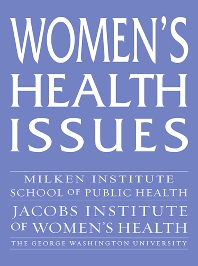Urologic Oncology: Seminars and Original Investigations
- ISSN: 1078-1439
- 5 Year impact factor: 2.5
- Impact factor: 2.4

The Medicine portfolio strives to advance medicine by delivering superior evidence-based education, reference information and decision support tools to clinicians, trainees, and students. Specialties covered include Anesthesiology, Internal Medicine, Surgery, Radiology & Imaging, Pathology, Orthopedics, Ophthalmology, Infectious Disease, Allergy & Immunology, Pediatrics, Obstetrics & Gynecology, Hematology & Oncology, Plastic Surgery, and many more. The Medicine portfolio includes world-renowned titles such as Gray's Anatomy and Netter Atlas of Human Anatomy, Braunwald's Heart Disease, Goldman-Cecil Medicine, Osborn's Brain, Dermatology (Bolognia), Diagnostic Ultrasound (Rumack), The Harriet Lane Handbook, Fanaroff and Martin's Neonatal-Perinatal Medicine, Ferri's Clinical Advisor, Conn's Current Therapy, and more.









Aids and hiv
Allergy and clinical immunology
Anatomy
Anesthesiology
Basic medical science
Biochemistry
Cancer
Cardiology and cardiovascular medicine
Chemotherapy
Clinical medicine
Clinical neurology
Colon and rectal surgery
Critical care
Dermatology
Diagnostic imaging
Diet therapy
Emergency medicine
Endocrinology and metabolism
Epidemiology
Family practice
Forensic medicine
Gastroenterology and hepatology
General medicine
Genetics
Geriatrics
Health care delivery
Health information management
Health policy
Health risk assessment
Hematology
Histology
Holistic medicine
Infectious diseases
Internal medicine
Laboratory medicine
Medicaid and medicare
Medical biotechnology
Medical caregiving
Medical education and training
Medical ethics
Medical informatics
Medical neuroscience
Medical practice management and reimbursement
Medical research
Microbiology
Nephrology
Neurosurgery
Obstetrics and gynecology
Oncology
Ophthalmology
Optometry
Orthopedics and biomechanics
Osteopathy
Otorhinolaryngology
Pain medicine
Pathology
Pediatrics
Perinatology and neonatology
Pharmacology
Physical medicine and rehabilitation
Plastic surgery
Preventive medicine
Psychiatry
Public environmental and occupational health
Pulmonary and respiratory medicine
Radiology nuclear medicine and medical imaging
Reproductive medicine
Review and reference
Rheumatology
Sports medicine
Substance abuse
Surgery
Thoracic surgery
Ultrasonography
Urology
Vascular surgery